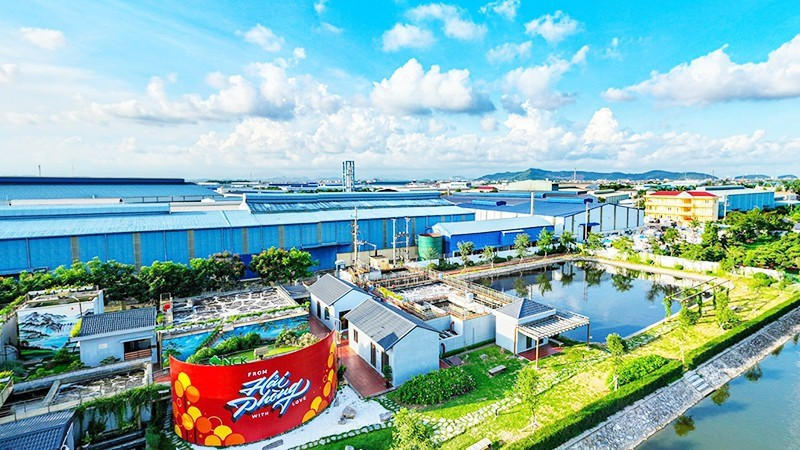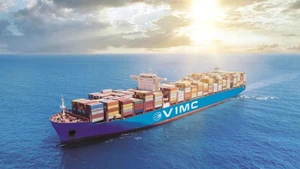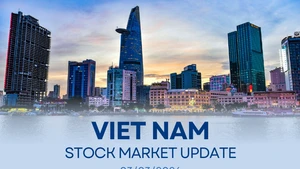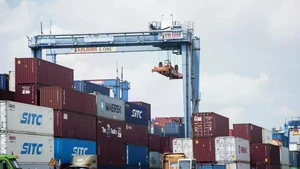In March 2024, Nam Cau Kien Industrial Park, Hai Phong City started to prepare an ESG (Environmental, Social and Governance) report and after more than nine months completed it, bringing many practical values.
The journey of growth
According to Dr. Pham Hong Diep, Chairman of the Board of Directors of Shinec (investor of Nam Cau Kien Industrial Park), ESG helps industrial parks create clear advantages when about 70% of foreign investors (FDI) are currently interested in this factor. In addition, businesses can easily access green capital with lower interest rates, improve compliance, and reduce social and environmental risks. More importantly, ESG brings direct benefits to workers.
Not only for industrial parks, at large corporations like VinFast, ESG is no longer an option but has become a vital factor. According to David Falcon Adasme, ESG Director of VinFast, investors are increasingly interested in green projects and are willing to invest in businesses that truly value ESG. For VinFast, ESG is placed at the centre, not only for internal development but also to contribute to building the image of a modern and responsible Vietnamese brand on the global map.
The market is maturing rapidly with more than half (54%) of businesses saying they have implemented ESG commitments. The motivations for implementing ESG in Viet Nam are also gradually becoming clear. Legal compliance is still the main driving factor, mentioned by 70% of businesses as the top reason.
Nguyen Hoang Nam, ESG Consulting Services Leader, Deputy General Director of PwC Viet Nam, said that Vietnamese businesses are entering a new phase in the ESG maturity journey. He added that for an export-oriented economy like Viet Nam, meeting international ESG standards is a prerequisite for maintaining competitiveness. At the same time, Viet Nam has committed to achieving net zero emissions by 2050 and becoming a high-income country by 2045.
The gap between ambition and implementation
As businesses move from commitment to concrete action, they are facing a new set of challenges that vary according to their stage of maturity. For businesses in the development stage, the barriers are mainly internal, including lack of clear strategy (70%), lack of expertise (60%) and incomplete measurement systems (54%).
Mature businesses face external obstacles, such as gaps in legal policies (45%) and economic instability (38%), making it difficult to scale up ESG implementation.
In that context, in the Asia-Pacific region, 45% of CEOs believe that their businesses will not survive in the next 10 years without transformation. That shows that, with an export-oriented economy like Viet nam, ESG must be integrated into the core functions of the business, from risk management, finance to operations.
To accelerate the ESG journey, PwC Viet Nam Deputy General Director said, businesses expect to receive practical support factors. From the Government, businesses want financial sponsorships linked to sustainable development, green standards and certifications, laws related to sustainable development with incentives. From the market, businesses need solutions suitable for each stage of maturity such as roadmaps and basic knowledge training, specialised tools such as emission data tracking systems and materiality analysis.
According to Lang Trinh Mai Huong, Deputy Director of the Department of International Cooperation, State Audit, in the past 2-3 years, the Government has issued many key strategies and resolutions towards green growth, circular economy and carbon market. Typically, the Government has implemented tax incentives for enterprises applying high technology in agriculture to reduce initial investment costs and improve competitiveness; built a framework for carbon credit and green bond mechanisms; at the same time, mobilising capital for sustainable development projects and issuing green financial incentives to create strong motivation for enterprises to actively implement. These steps are contributing to the formation of a favourable legal and financial ecosystem, helping ESG not only become a compliance requirement but also a strategic driving force for sustainable development.
However, for ESG to be effective, it is still necessary to perfect a number of important mechanisms, notably the mechanism for transparency and quality control of green projects. International practice has recorded risks, such as in Europe, there was a carbon-capturing forestation project, but after independent audits, it was discovered that the forest life cycle did not meet standards, even emitting more than its absorption capacity. This affirms the important role of independent audits and transparent standards to ensure investor confidence and effective use of green capital.
At the same time, the State needs to build a centralised, transparent database to help businesses and investors easily access information, thereby increasing initiative and creativity in implementation. This will be the foundation to promote innovation, optimise operations and improve efficiency at the national scale.
Regarding human resources, training is necessary but not enough. There needs to be a synchronous capacity development policy, combining skills training, raising awareness and building internal motivation for the team. Workers will actively participate when they clearly see the direct benefits to the environment, they work better, and their rights are more guaranteed. In addition, applying technology to shorten implementation time will help Viet Nam not only catch up but also surpass many other countries.
“For sustainable practices to become a driving force for development, a comprehensive policy system is needed, converging three factors: Trust and reputation from transparency, increasing business efficiency, optimising costs through risk management and green capital. When achieved, that will turn ESG from a compliance burden into a strategic key to help Vietnamese businesses develop sustainably and compete strongly in the international market,” Huong emphasised.
ESG is gradually becoming a standard in the market. Results from PwC Viet Nam’s ESG Practice Progress Survey Report 2025 show that 89% of businesses have or are planning to commit to ESG in the next two to four years, a significant increase compared to 80% in 2022.
















